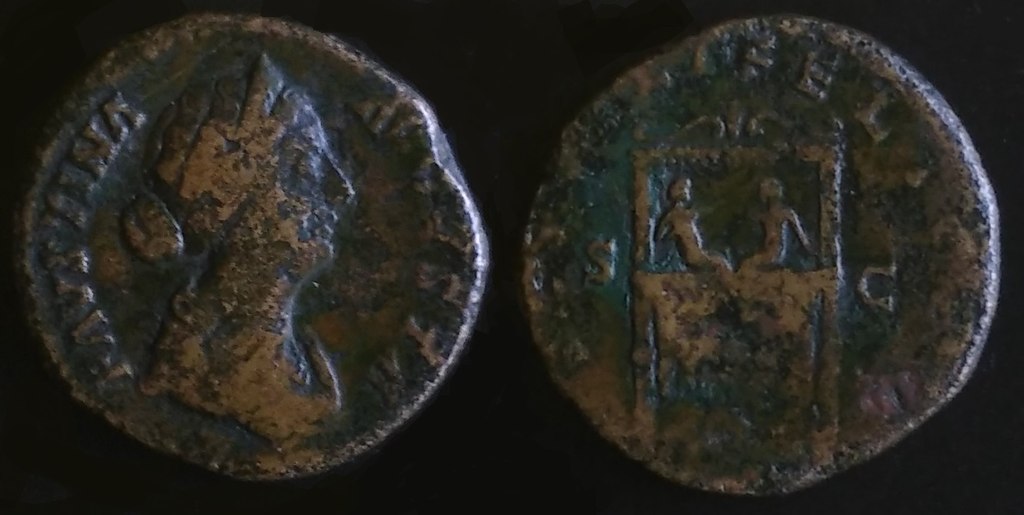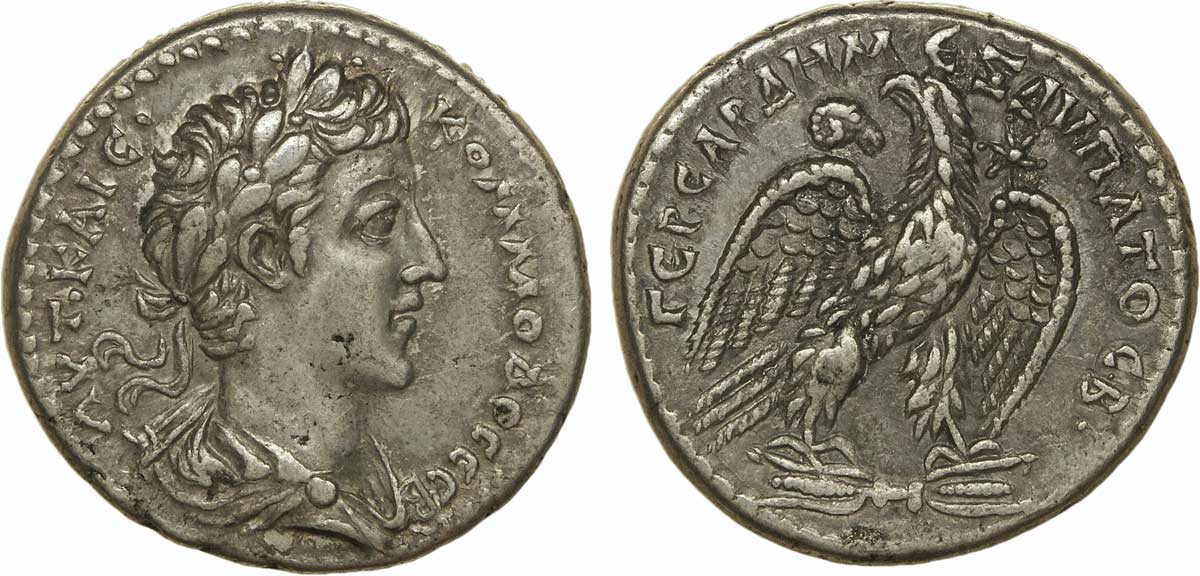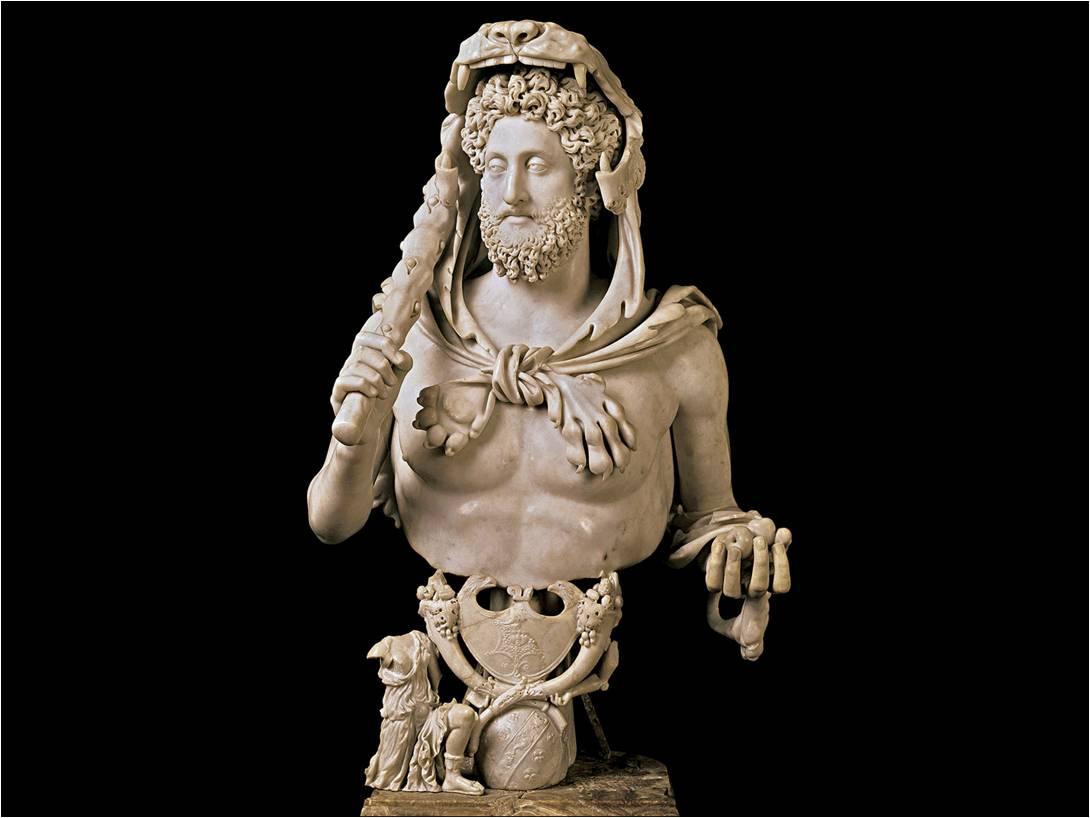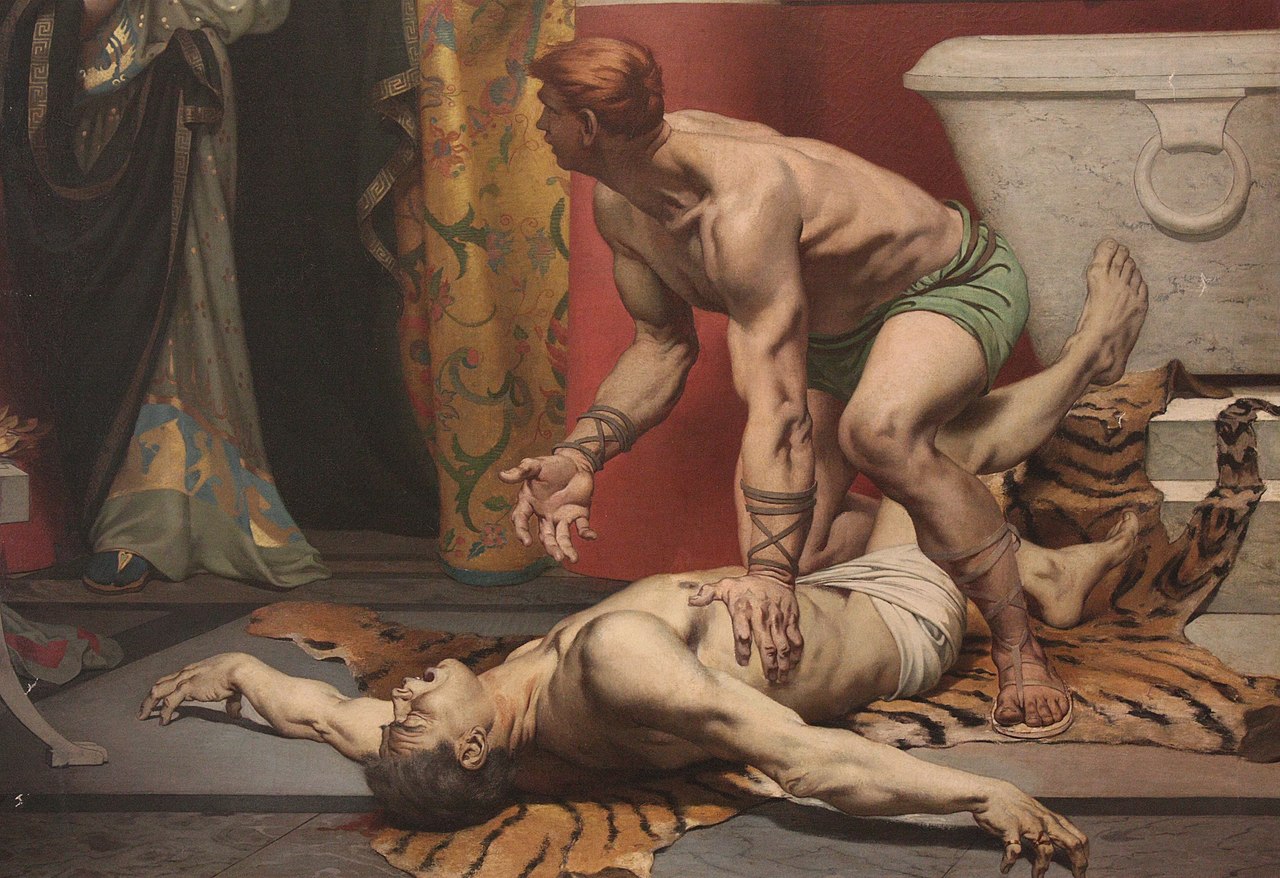Written by Edward Whelan, Contributing Writer, Classical Wisdom
The Roman Emperor Commodus (161-192 AD) is widely regarded as one of the ‘bad emperors’ and a bloody tyrant. This image has been perpetuated in several movies, especially the Decline and Fall of the Roman Empire (1964) and Gladiator (2000).
His reign and life were extraordinary by even the standards of the Roman Empire. However, what was the legacy of Commodus and was he is evil and Emperor as is often made out?
Early life
Lucius Aurelius Commodus was born in 161 AD, the son of the great Roman Emperor Marcus Aurelius. His mother was the aristocratic Anna Galeria Faustina Minor, and his parents were first cousins. Rome was at the zenith of its power and prosperity when he was born.
Marcus Aurelius is widely seen as one of the greatest of all Emperors’ and was also a renowned Stoic philosopher. Commodus was the only legitimate male child of the Emperor that survived into adulthood. When he was just five years old, Commodus was given the title of Caesar and this designated him as the heir of Marcus Aurelius.
His upbringing was one that was directed by his father. He had the best tutors and his personal physician was Galen. Marcus Aurelius’ later reign was marked by war and plague. The Emperor was forced to fight German tribes in the so-called Marcomannic Wars. Rome was also badly shaken by the terrible Antonine Plague that killed countless people.
Commodus was present at his father’s headquarters during the wars with the Germans, in 172 AD. Marcus was constantly on campaign and after a bitter struggle by 177 AD he was close to victory. He was on the verge of annexing much of modern Central Europe to the Empire. In 177 AD, Commodus was made co-ruler of the Roman Empire with his father.
No future Emperor was as well-prepared for his future role as Commodus. However, from an early age his temper and unpredictability made many doubt his suitability for the role.
Commodus’ Reign
Marcus Aurelius died in 180 AD and he was mourned by his entire Empire. Commodus became sole ruler of the Roman World. The first thing that he did was end the war with the Germans and decided not to annex the, and turn them into a province his father had conquered. Many believe that this was the right strategic decision.
Commodus returned to Rome and he turned over the reins of government to the corrupt Praetorian Prefects. We know little of the early years of his reign, but it appears that after a conspiracy to assassinate him, he became paranoid.
Commodus’ paranoia turned to cruelty, as could be seen, for instance, when he tried to kill the woman he loved (his mistress)—more than once. He soon devoted all his energy to his passions and he virtually handed the government of Rome to Cleander, a Phrygian former slave. Commodus also had a streak of sadism, delighting in tormenting and torturing the disabled. However, his overriding passion was gladiatorial games.
The Gladiator Emperor
The Roman elite was obsessed with the bloody sport, but Commodus took it to extremes. He would fight in the arena, which was against all the social norms of the time. In the early years of his reign he would invite gladiators to his palace and in staged combats, he would kill them. Typically, he would be armed, and the gladiators would be armed only with imitation weapons.
If this was not bad enough, he decided to participate in the Gladiatorial Games in the Coliseum, in Rome. He would appear as a gladiator and he would kill the disabled and later he would slaughter gladiators. All of his victims would have been tied up or unarmed… They didn’t stand a chance.
Commodus was certainly bloodthirsty. However, he used his displays at the games to demonstrate his power. His slaughter in the arena demonstrated to his many enemies his cruelty and this made people afraid of him. Commodus’ extravagance in the arena was such, that he almost bankrupted the Empire. To pay his debts he was forced to devalue the coinage which wreaked havoc on the economy.
Commodus as God
Commodus was the first Emperor born into the ‘purple’. He knew that he would be an Emperor from childhood. From an early age he displayed signs of megalomania and he heeded no-one apart from his father. During his reign he self-identified with Hercules and wanted to appear god-like to the people of Rome. He even had the temerity to name the months of the year after himself.
The Roman Imperial system was one that was based on the Emperor cooperating with the Senatorial elite. However, Commodus intimidated the Senatorial elite and ruled as an absolute ruler. Nothing could restrain him, and he even had an entire family killed so that he could seize their wealth. When he became unpopular, he did the same thing to Cleander and his family. Commodus even had his former favorite’s head placed on a spear and paraded around Rome.
The assassination of Commodus
In 192 AD, the people of Rome had enough. Several leading figures entered a conspiracy. At first, they poisoned him, but Commodus managed to vomit up the poison. They then hired his favorite wrestler known as Narcissusus and he murdered the Emperor in his bath. Petrinax was acclaimed Emperor but he was later deposed, and this led to a series of civil wars that only ended with the rise of Septimius Severus.
The legacy of Commodus
Commodus was a bloody tyrant and his reign was also a disaster and contributed to the decline of the greatest Classical Empire. After his reign of terror, the Emperors became the absolute rulers of the Roman World, following his example. Most importantly of all, Commodus weakened the economy of Rome, with his lavish spending. This was to lead to inflation which was a crucial factor in the ‘Third Century Crisis’ that almost destroyed the Roman Empire.
So, was Commodus as terrible as he is typically made out to be? Well, he certainly doesn’t seem to have been the worst, but he was far from an angel. The final judgment on the character of this Roman leader, I leave up to you.














2 comments
What a monster! Yet history has its own irony. Instead of being remembered as a month or a Hercules, he will forever be associated with Commodes.
Nice article; it would have been nice to submit your opinion however since the article was named
Emperor Commodus: Was He Really So Terrible?
While I appreciate you leaving the final assessment up to me… my assessment would be based on your article since I’m not a scholar AND my next surf on the web will probably have something to do with Britney Spears or b oo bs…
SOOOOO — ima jus sayin’ it’s okay to complete the article with:
1) Yep he was terrible… or
2) He was terrible and even to this day we would have been better off if he had been killed as a child… or
3) Was he terrible? Yes that guy was a f IN d**k!… or
4) He was responsible for the beginning of the end!
But “I leave it up to you” — JEEZUS!
Trackbacks
Our apologies, you must be logged in to post a comment.